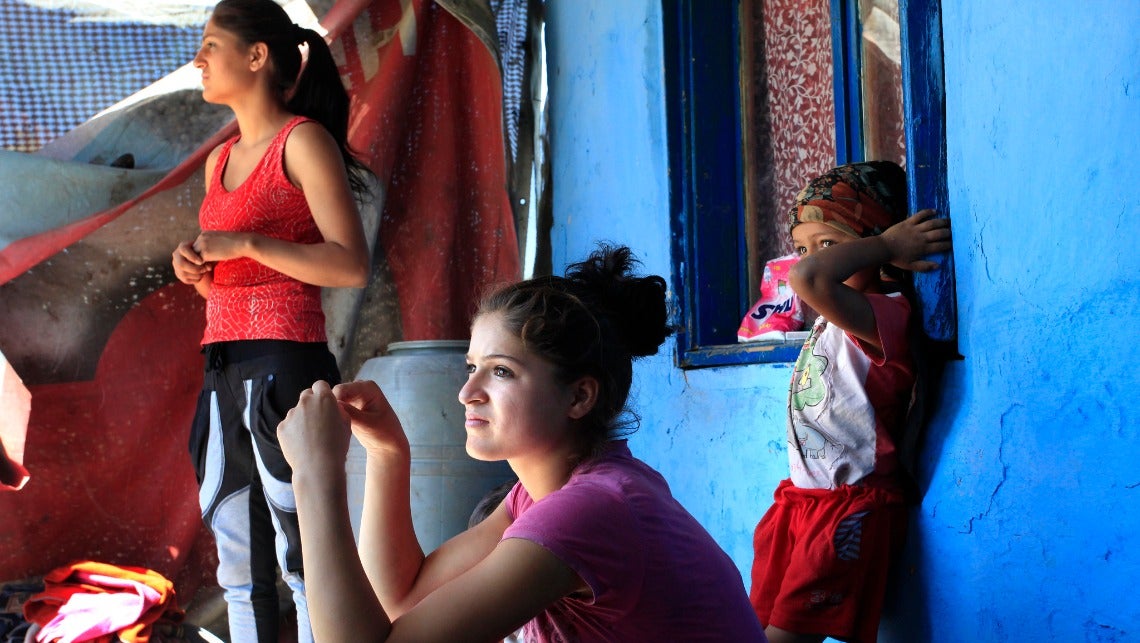Gender-based violence (GBV) — the various forms of violence directed at an individual or a group based on their gender, both in public places and within the home — is a phenomenon deeply rooted in gender inequality. GBV does not just have a profound impact on individuals and violates their basic human rights, including the right to life in extreme cases; it also carries a heavy cost for society.
In Romania, a country which ranks last in the EU on the Gender Equality Index, GBV results in economic losses of €16 billion per year, according to the European Institute for Gender Equality. On the flipside, eliminating gender inequality could increase the country’s GDP by 8.7 percent by 2030, while improving the wellbeing of women and girls.
Legislative efforts are underway…
Since ratifying the Council of Europe’s Istanbul Convention in 2016, Romania has taken important steps to integrate the treaty’s provisions into the national legal framework and strategies. Earlier, the country had already adopted legislative amendments to criminalize various forms of violence and established a National Agency for Equal Opportunities for Women and Men (ANES), which has been instrumental in instituting policy measures and coordinating service provision to address gender-based violence.
However, various reports (including by the UN Working Group on Discrimination against Women and Girls, the EU’s Group of Experts on Action against Violence against Women and Domestic Violence Committee as well as the U.S. Department of State) have noted shortcomings in the legal and policy framework. These include: i) deficiencies in relation to investigation and prosecution of GBV cases, ii) gender stereotyping in public institutions in the determination of what constitutes an offence, and iii) a lack of measures to address specific needs of women facing multiple and intersecting forms of discrimination, including women from the Roma community, and women and girls with disabilities. These factors contribute to a lack of trust in the criminal justice system and lead to underreporting of cases.
…but lack of data hides the magnitude of GBV
Despite these national efforts, the full extent of GBV in Romania remains hidden in plain sight. The country lacks key data that are critical to understand the magnitude of the problem, inform policy actions, and monitor progress. The 2023 World Bank Gender Assessment for Romania, which involved extensive consultations with governmental and non-governmental stakeholders, summarizes the major data gaps:
Understanding prevalence
Romania needs a comprehensive study to assess the magnitude of GBV, as well as the availability and accessibility of various response services. The most extensive GBV assessment ever conducted in Romania and still widely cited is based on the EU-wide Survey on Violence Against Women conducted nearly a decade ago, and therefore somewhat outdated.
Moreover, the World Bank’s Gender Assessment Report confirms what the Council of Europe has also observed, that Romania lacks an integrated system of data collection on domestic violence as well as a comprehensive system of data collection covering all other forms of violence against women.
While Romanian public institutions collect administrative data related to GBV, inconsistencies in the tabulation of incidents, details about survivors, and their relationship with perpetrators make it impossible to corroborate data across agencies. Despite these limitations, available data show that the number of complaints received by the police is high, conviction rates are low, and the capabilities of specialized social services fall short of needs. For instance, an analysis of administrative data records in absolute numbers shows that while the police recorded 45,405 cases of domestic violence in 2020, the Romanian General Prosecutor’s office’s records show that only 1,512 cases were heard in court, meaning that a mere 3.3 percent of those who reported their cases to the police found legal remedy. In terms of access to services for survivors of GBV, the administrative data compiled by ANES shows that annually, only 2,000 women receive services from public and NGO-based providers, meaning that only 4.4 percent of survivors who reported their case to the police have access to services.
Understanding drivers
Few studies cover social norms in Romania and only two comprehensive perception surveys have been conducted on GBV. The most recent, in 2022, indicated a positive shift in social attitudes towards violence against women, compared to the results of a similar 2003 study. Despite this positive shift in norms, in addition to domestic violence, other forms of GBV also persist and the underlying factors that drive them are not well understood.
- Romania still has the highest national incidence of early marriages in the EU, though it is on a downward trend.
- In Europe, it is a leading country of origin for human trafficking, mostly of women (and children) trafficked for sex and forced labor.
- According to the 2019 EU Fundamental Rights Report, Romania (along with Poland) records the highest rate of physical or sexual attacks against LGBTI people. The extent of these assaults is likely much wider as only six percent of LGBTI respondents said they had reported the latest incident, citing fear of homophobic/transphobic reaction from the police (38 percent) and feeling shame or embarrassment (34 percent).
These various forms of GBV are rooted in harmful gender norms and stereotypes, coupled with gendered socio-economic inequalities and other forms of discrimination. Understanding the underlying driving factors is critical to devise policies that address them effectively.
Investing in Action, Now
Addressing GBV in Romania requires concerted efforts. Civil society has led various efforts of championing local action to prevent and respond to various forms of GBV, including awareness raising and prevention activities as well as complementing government efforts to provide shelters and other services to survivors.
The World Bank is also supporting the government of Romania, through projects such as Strengthening Foundations for Improved Justice Service Delivery, which seeks to deliver a user-centered approach to how justice services are provided across jurisdictions, including through improvements to the management of legal aid. Targeted beneficiaries of this project include survivors of GBV, and other vulnerable groups such as Roma, people with disabilities and sexual minorities. These groups are expected to benefit from the prioritization and non-discriminatory treatment of vulnerable groups and new monitoring processes.
For the Government of Romania, there is an opportunity to demonstrate its leadership in investing in GBV prevention and response. This would include prioritizing amendments to legal frameworks such as the Domestic Violence Law and the criminal code, to fully incorporate the principles of the Council of Europe. To improve data on incidence and prevalence of various forms of GBV; as well as tracking of measures for prevention, response and prosecution services, Romania needs to legally mandate a harmonized cross-institutional framework for compilation of administrative data. In addition, the country needs to invest in collecting more evidence on the roots of GBV and identifying best practices to shift social norms.
Policy responses will remain insufficient if survivors of GBV feel unable to come forward for fear of stigma, shame, or retaliation. Combating discrimination and entrenched perceptions of gender requires sustained and coordinated efforts through collaboration between public agencies, academia, civil society and international partners, as well as an adequate allocation of resources.
To receive weekly articles, sign-up here




Join the Conversation